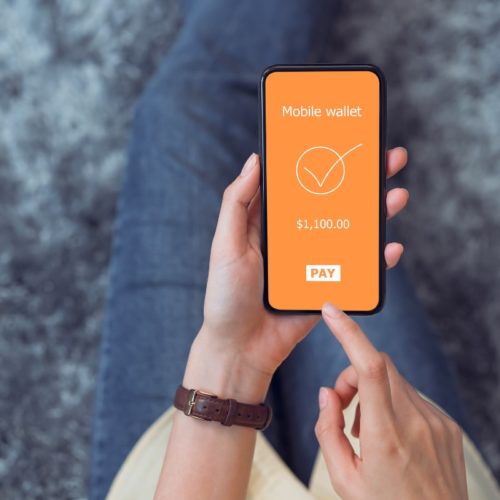A CD is an agreement: You commit to leave your money in the bank for a set period of time. In exchange for your commitment, your bank agrees to pay you a higher interest rate (compared to a regular savings account’s interest rate).
Normally, making a longer commitment pays a higher rate of return. So CDs provide a great place to store cash – if you’re good at committing to a fixed interest rate for a fixed length of time.
Yes, you could access your money before the term expires, but you’d have to pay back part of the interest.
To find the best CD rates for 2025 you’ve come to the right place. I’ll share some of the highest-earning CD accounts – as well as provide detailed information about other attractive features CD accounts offer.
Best CD Rates by Term for July 2025
Click on each term length below to discover which banks and credit unions are offering the highest CD rates.
5 Year CD Rates
| Bank | APY | Min Deposit |
|---|---|---|
| America First Credit Union | 4.25% APY | $500 |
| Synchrony Bank | 4.15% APY | $0 |
| Fidelity Investments | 4.10% APY | $1,000 |
| Bread Financial | 4.00% APY | $1,500 |
| First Internet Bank | 3.97% APY | $1,000 |
| Sallie Mae Bank | 3.80% APY | $2,500 |
| American Express | 3.75% APY | $0 |
| Marcus by Goldman Sachs® | 3.75% APY | $500 |
| Crescent Bank & Trust | 3.75% APY | $1,000 |
| CFG Community Bank | 3.65% APY | $500 |
3 Year CD Rates
| Bank | APY | Min Deposit |
|---|---|---|
| Fidelity Investments | 4.25% APY | $1,000 |
| America First Credit Union | 4.15% APY | $500 |
| Bread Financial | 4.00% APY | $1,500 |
| Synchrony Bank | 4.00% APY | $0 |
| First Internet Bank | 3.97% APY | $1,000 |
| Marcus by Goldman Sachs® | 3.90% APY | $500 |
| CCBank | 3.80% APY | $1,000 |
| CFG Community Bank | 3.75% APY | $500 |
| Crescent Bank & Trust | 3.75% APY | $1,000 |
| Navy Federal Credit Union | 3.70% APY | $1,000 |
12 Month CD Rates
| Bank | APY | Min Deposit |
|---|---|---|
| First Internet Bank | 4.40% APY | $1,000 |
| Sallie Mae Bank | 4.40% APY | $2,500 |
| America First Credit Union | 4.35% APY | $500 |
| CCBank | 4.35% APY | $1,000 |
| Navy Federal Credit Union | 4.30% APY | $50 |
| Fidelity Investments | 4.25% APY | $1,000 |
| CFG Community Bank | 4.15% APY | $500 |
| Service Credit Union | 4.15% APY | $500 |
| Marcus by Goldman Sachs® | 4.10% APY | $500 |
| Live Oak Bank | 4.10% APY | $2,500 |
6 Month CD Rates
| Bank | APY | Min Deposit |
|---|---|---|
| First Internet Bank | 4.49% APY | $1,000 |
| CCBank | 4.40% APY | $1,000 |
| Bread Financial | 4.35% APY | $1,500 |
| Fidelity Investments | 4.35% APY | $1,000 |
| America First Credit Union | 4.35% APY | $500 |
| Service Credit Union | 4.25% APY | $500 |
| Marcus by Goldman Sachs® | 4.20% APY | $500 |
| Sallie Mae Bank | 4.15% APY | $2,500 |
| Vio Bank | 4.10% APY | $500 |
| Alliant Credit Union | 4.10% APY | $1,000 |
3 Month CD Rates
| Bank | APY | Min Deposit |
|---|---|---|
| Fidelity Investments | 4.45% APY | $1,000 |
| America First Credit Union | 4.35% APY | $500 |
| Service Credit Union | 4.00% APY | $500 |
| EverBank | 3.90% APY | $1,000 |
| Bread Financial | 3.80% APY | $1,500 |
| First Internet Bank | 3.72% APY | $1,000 |
| Alliant Credit Union | 3.10% APY | $1,000 |
| Live Oak Bank | 3.00% APY | $2,500 |
| Ally Bank | 2.90% APY | $0 |
| Discover Bank | 2.00% APY | $0 |
Top Banks for Best CD Rates
Here are the best CD rates from 10 top banks:
- 🏆 CIT Bank
- Synchrony
- Quontic Bank
- Discover Bank
- Ally Bank
- Barclays
- Sallie Mae Bank
- Marcus by Goldman Sachs
- Fidelity
- American Express
1. CIT Bank
- APY: 3.50% APY
- Term: 13 Month
- Minimum Deposit: $1,000
Offering competitive interest rates and flexible terms with no monthly fees, CIT Bank’s CDs provide a great way to grow your savings, whether it’s short-term or long-term.
Interestingly, with CIT Bank, you could get higher annual percentage yields (APY) on some of the shorter-term products (for example, CIT’s 12-month term APY is higher than its 36-month APY) – so consider CIT Bank when you’re nervous about long commitments but still want a healthy rate.
CIT Bank offers 3 types of CD products: term CDs, No-Penalty 11-month CDs, and Jumbo CDs.
CIT Bank’s Term CDs offer some attractive rates for terms from 6 months to 5 years – while CIT’s No-Penalty CDs offer some of the best rates on the market with a minimum opening deposit of $1,000 – giving you access to flexibility, as well as lucrative interest.
Continue Reading:
- Read our full CIT Bank Review.
2. Synchrony
- APY: 4.15% APY
- Term: 15 Month
- Minimum Deposit: $0
Synchrony Bank’s CDs are available for terms from 3 to 60 months – and they offer consistently excellent rates. There are not many bells and whistles (no jumbo, bump up or any other funny-sounding options!) – just straight-up term certificates of deposit.
Synchrony is an online-only financial institution. This means you won’t find physical branches in your area – and this may be a deal-breaker for some people.
As with any other providers on this list, your money is FDIC-insured, up to $250,000. You can also easily bank on the go with the top-rated Synchrony app, which allows you to control your accounts from your smartphone (be it iOS or Android).
2. Quontic Bank
- APY: 3.75% APY
- Term: 6 Month
- Minimum Deposit: $500
Quontic Bank is a relatively unknown institution, but don’t let that fool you. They seem to have made a commitment to offering the highest APY on all their products.
Their CDs are no exception.
You won’t have to break the bank on the minimum deposit, which is set at just $500, and there’s no monthly service charge.
Unlike a brick-and-mortar bank, buying a certificate of deposit from an online bank means you won’t be able to visit physical branches or apply for a CD in person.
However, there’s no real need to since CDs are one of the most boring types of investments…they just sit there and collect interest.
Continue Reading:
- Read our full Quontic Bank Review
4. Discover® Bank
- APY: 4.00% APY
- Term: 9 Month
- Minimum Deposit: $0
Discover® Bank offers some of the highest CD rates as well as several term options (from a shorter 3-month term to a longer 10-year term). This provides extra flexibility – not all competitors offer such a wide range of terms.
With Discover® Bank, the longest CD terms pay the highest rates. For example, a 3-month CD will pay 0.35 percent; a 1-year term pays 1.35 percent.
You can access your money early if you need to – but you will be charged a penalty. However, with no monthly fees and easy account management on the Discover app, this is a solid CD option.
Continue Reading:
- Read our full Discover Bank Review.
5. Ally Bank
- APY: 3.90% APY
- Term: 6 Month
- Minimum Deposit: $0
Ally Bank is another great place to find generous rates on CDs. The online bank offers High-Yield CDs, Raise-Your-Rate CDs, as well as No Penalty CDs, giving you plenty of options.
Ally Bank’s High-Yield CDs are available in terms from 3 months to 5 years, and you will pay a penalty if you want to access your money early. The No Penalty CDs are a better option if you think you might need to get hold of your money before the maturity date – however, the rates for No Penalty CDs are lower.
Raise Your Rate CDs allow you to take advantage of a higher CD rate offered by Ally Bank (if it comes along during your term). You start with one rate, then have the option of bumping it up during the term of the CD to the current 2-year CD rate, or twice if you choose the 4-year term. The maturity date doesn’t change – but you can make your money go a little further.
Continue Reading:
- Read our full Ally Bank Review.
6. Barclays
- APY: 4.00% APY
- Term: 1 Year
- Minimum Deposit: $0
London-based Barclays also offers fantastic online CDs to U.S. customers which come with attractive rates across a variety of terms. For example, you could lock in 1 percent APY whether you’re buying a 1-year CD or a 5-year CD or something in between — which is pretty awesome.
Your interest compounds daily, and there are no monthly fees nor minimum balances. The steady across-the-board CD rates let you create a stable CD ladder so you maximize your earnings. CD laddering means dividing your deposit into multiple CDs with different maturity dates.
This strategy reduces the risk of needing to access your money before the maturity date – but it’s a double-edged sword because your interest rate could decrease with the broader market.
Continue Reading:
- Read our full Barclays Bank Review.
7. Sallie Mae Bank
- APY: 4.40% APY
- Term: 1 Year
- Minimum Deposit: $2,500
Sallie Mae CD rates are generous – and the bank offers several short-term and long-term CD options (from 6 months to 5 years).
The bank’s rates are particularly competitive for shorter-term CDs – like 6-month or 9-month terms – because most banks will offer lower rates for such terms. Typically, a bank will offer higher rates the longer the CD term.
That said, you will need a minimum deposit of $2,500 (and to maintain this balance) to earn competitive returns. There are no monthly fees – but you will pay a $5 returned deposit fee.
And – just like with most other CD accounts – you will pay a penalty if you withdraw your money before maturity.
8. Marcus by Goldman Sachs
- APY: 4.20% APY
- Term: 6 Month
- Minimum Deposit: $500
Marcus by Goldman Sachs also offers some high-yield certificates of deposit for terms that range from 6 months to 6 years – especially if you’re looking to get an attractive rate for shorter-length investments. A 12-month Marcus by Goldman Sachs CD can earn you as much as 1.4 percent APY.
You’d need $500 to open a CD account with Marcus by Goldman Sachs.
You can also check how much you could earn over time using the CD calculator on the bank’s website – and that’s guaranteed to get you excited about your potential returns.
9. Fidelity
- APY: 4.45% APY
- Term: 3 Month
- Minimum Deposit: $1,000
Fidelity may not be a financial institution you know a lot about – however, this top-rated low-cost online broker can help you find some of the very best CD rates.
Brokered CDs resemble bank CDs. They both pay set interest rates (which are usually higher than a traditional savings account’s rates). They both have maturity dates and FDIC protections.
The main difference between brokered CDs and bank CDs is how they are bought and sold. Brokered CDs are bought and sold by brokerage firms. Your CDs can be held at different banks but all are managed through Fidelity. This could extend your FDIC protection beyond $250,000 without managing several bank accounts.
Fidelity sells brokered CDs through two venues – new issue offerings, and the secondary market. It’s an excellent place for CD laddering (i.e., setting up your CDs so that they mature at staggered intervals).
You can earn the most with Fidelity’s 5-year CD. Fidelity charges no maintenance fees and has a highly-rated mobile app, which you can use to manage your CD on the go.
Continue Reading:
- Read our full Fidelity Review.
10. American Express
- APY: 3.85% APY
- Term: 18 Month
- Minimum Deposit: $0
You know American Express from its ubiquitous credit card badges at retailers; you may not associate this brand with saving money. But cardholders can open high-yield savings accounts or buy CDs up to five years in term lengths.
American Express’s rates won’t blow you away. They top out at their highest rate for a 60-month CD term. But you will get some unusual flexibility and transparency.
For example, with American Express you could automatically transfer your interest income into a savings account or onto your credit card balance. This won’t help your long-term savings goals, at least not directly. But the interest income could chip away at your credit card balance.
Continue Reading:
- Read our full American Express Bank Review.
What is a Certificate of Deposit and How Does it Work?
CDs are special savings accounts where you store your money for a set period of time in return for an attractive interest rate. Most of the time, your money is sort of locked away – and you don’t get to use it until the CD’s maturity date.
That’s because you agree to let your bank use your deposit for a specific period of time. In exchange, the bank offers you a higher annual percentage yield (APY).
CDs are ideal when you want to maximize your guaranteed interest rate on the money you don’t need to spend. If you need to use the money, don’t buy a CD. Open a high-yield online savings account or money market account instead.
Or look for a short-term CD. Most of the best CD providers on my list above have 3-month and 6-month terms with rates that exceed regular savings rates.
And even if you bought a long-term CD and needed the money sooner than you’d expected because of an emergency, you can still spend the money. You’d just have to pay an early-withdrawal penalty which normally negates part of your interest earnings, turning your CD back into a regular savings account.
How to Choose the Best CD for Your Financial Needs
Opening a CD account is one of the most lucrative low-risk investment vehicles you’ll find. Locking your money away for a set period means your bank will reward you with a higher interest rate – which is ideal if you’re happy not to see your money for a set period while you let it grow.
Now that you know about so many CD providers, you may be wondering how to choose the provider best suited for your financial needs. Along with the rates, consider the CD’s term and its penalty structure in case you do need an early withdrawal.
Unexpected things happen – so my advice would be to have another, perhaps a more flexible high-yield savings account that gives you penalty-free access to your funds in case of an emergency.
If you don’t have one – then choosing the CD with the lowest penalty (or no penalty, as offered by Ally Bank) for early withdrawals might be a smart move.
How Do You Deposit Money Into an Online Bank CD Account?
People ask this question a lot. They want the higher account rates online banks talk about but they don’t want to mail checks or cash. I wouldn’t want to, either.
The best way to deposit money into an online bank will be through your national bank or credit union. You can connect your online-only bank to your neighborhood bank account. Then you can make electronic transfers from one bank to the other.
So if you saved up $1,000 in cash tips and wanted to open a CD at Ally Bank, you’d deposit the cash into your neighborhood bank and then transfer the same deposit amount to your Ally account. Give your banks a few business days to complete the transfer.
Most online banks will not accept cash. They may accept mailed checks. Almost all let you make mobile deposits.
Are CDs Federally Insured?
Bank CDs have FDIC or NCUA protection up to $250,000. Brokered CDs may not offer this same protection, especially when their interest rates are connected to a securities market such as the S&P 500 or the Dow.
Also, some brokerage houses sell CDs that store funds in offshore banks — known as Yankee CDs — which do not have federal deposit insurance protection.






No comments yet. Add your own